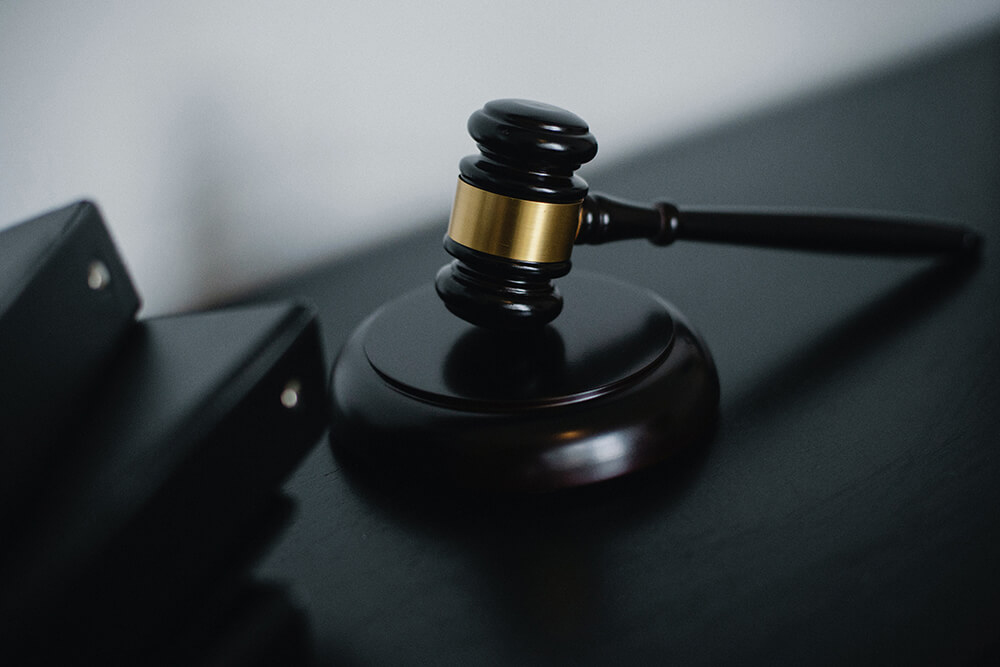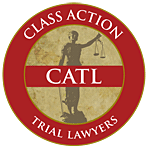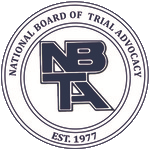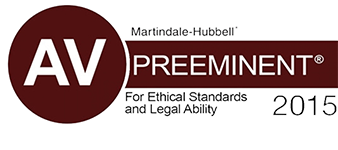
For every personal injury case, there are various factors to consider and several important decisions to make. One major decision you and your attorney will need to make is whether to accept a settlement (a formal resolution of your lawsuit) or take your case to trial. Most personal injury cases settle before going to trial, but under some circumstances, it is advisable to take the case to court.
Although it is more likely that your case will settle out of court, an experienced lawyer will still prepare for a trial even as you are working to reach a settlement. This will give you an advantage in the event that you decide your case should go to court. The Kentucky trial lawyers at Golden Law Office know that every case undergoes unforeseeable developments, and we accordingly go above and beyond to prepare for every possible scenario. Let’s take a look at the reasons some cases go to court, and what happens when they do.
Why Cases Go to Trial
If your lawyer is able to help you reach a fair settlement without the need for a trial, settling out of court is almost certainly the best outcome for your case. A fair settlement is one in which you are able to obtain appropriate compensation for your injuries and damages. If a settlement provides that, there is no reason to go to court. However, if it is impossible to reach a fair settlement, you may consider taking your case to court.
Settlements are reached following negotiations between lawyers of opposing parties, or between a lawyer and an insurance company. When those negotiations do not go smoothly, you and your attorney may decide that going to court gives your case the best chance of success. For example, if an insurance company refuses to provide you with the compensation you need and deserve, your lawyer may advise you that the only way to recover your losses is to go to trial. Likewise, the publicity of a trial may be advantageous in order to hold a negligent party, such as a large corporation, visibly accountable for harmful actions, and achieve justice for an individual or group. Large companies are often eager to avoid the publicity of a trial and may be thus incentivized to reach a satisfactory settlement.
Differences Between Settlements and Trials
If you and your lawyer reach the inevitable decision that a court trial is the best option for a successful outcome of your case, you also understand that there will be significant changes to the way your case is handled once you go to trial. The following is a synopsis of a few of the most fundamental differences between settlements and trials:
- Settlements are private, but trials are public.
- Settlements are reached between the two involved parties, but a trial brings in a judge, and often a jury, as well.
- Settlements are generally much quicker and more efficient than trials.
- Settlements can always be accepted or denied by you and your lawyer, but the outcome of a trial is in the hands of the judge.
- Settlements are settled on a determined amount of compensation, but a greater amount may be reached through a trial.
What Happens in a Trial?
There are many legitimate reasons to avoid going to trial, but it is also common for people to fear taking their case to court, even when it might be the best course of action. This fear is frequently due to apprehension about the amount of time and effort a case will involve, uncertainty of the outcome, or lack of knowledge about the proceedings.
The best thing you can do is to seek the support of a qualified lawyer who can guide you through the process and advise you of your rights and options. It is also important to keep yourself educated and informed. Gaining a better understanding of court proceedings can help alleviate any trepidation you may be feeling about going to trial. In fact, most of the time and effort associated with court cases is allocated to preparation, rather than the actual trial itself. While the length of the trial can range anywhere from hours to weeks, you can expect the following general process when your case goes to court:
- Arrival at the Courthouse. This may seem like the simplest step in the trial process, but it can be the most intimidating for some people. The task will be less worrying when you have prepared well. Good preparation, in addition to the planning done to ready your case for trial, includes a calm demeanor and balanced emotional state, professional attire, and plenty of time to arrive in a punctual, unrushed manner.
- Opening Statements. Opening statements give each side the opportunity to explain to the court what the case is about and what they will set out to prove. The first party to make a statement is the plaintiff, or the side which initiates the case and brings a complaint against the opposing party. The plaintiff’s goal in court is to prove that the other party (called the defendant) is liable for the damages they incurred.
- Witness Testimonies. If you are the plaintiff, you will have the opportunity to publicly tell your side of the story. This allows you to explain the details of what happened and how you were affected. This is also a chance for eyewitnesses of the event, or witnesses who are subject matter experts in a field related to your case, to present evidence to support your claim. The defendant will similarly be able to present their side of the story and bring witnesses forward.
- Cross-Examination. Cross-examination is when the lawyer of one party asks questions of the witness of another party. The questioning is normally limited to facts and topics that were directly addressed by the witness in their testimony. The opposing party’s lawyer may try to identify inconsistencies or errors in the story. Before the trial, your lawyer will work with you to identify potential cross-examination questions and how to best handle them, so you will be well-prepared when your case goes to court.
- Closing Arguments. The plaintiff’s lawyer will usually go first in the closing arguments, as in the opening statements. The closing arguments, or summations, allow for a recap of the evidence and testimonies and how they support the claim. This will be the final opportunity for your lawyer to state your case and how it has been proven through the proceedings of the trial.
- Receive a Verdict. All participants will be present in the courtroom when the verdict is announced. The jury will communicate their decision to the judge, and the judge will read the verdict aloud. There will be a ruling for, or in favor of, either the plaintiff or the defendant. If the decision is for the plaintiff, in most cases there will also be an announcement regarding the amount of compensation that should be paid to the plaintiff by the defendant.
Find the Representation You Deserve
If you have been wronged and are seeking justice, the first step you should take is to find an attorney you trust. Your legal representation, whether in court or out of court, should be knowledgeable, skilled, and dedicated to your individual situation and needs. Our team at Golden Law Office believes in the importance of obtaining fair compensation for our clients who have been wrongfully injured. Possessing rich and extensive experience, we are prepared and equipped with the expertise to both negotiate settlements and take cases to court. We invite you get in touch with us today to schedule a free, no-obligation consultation.





